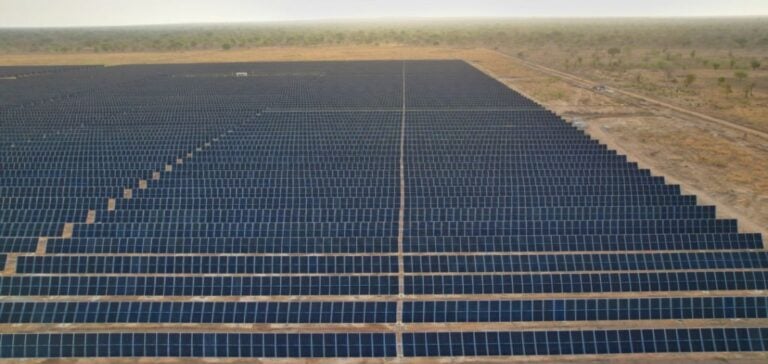Egypt has inaugurated a new 500-megawatt (MW) solar power plant in Aswan, marking a significant step in diversifying its energy mix. Designed and completed in just 18 months by AMEA Power, a Dubai-based company, this facility represents a total investment of $500 million. The project was funded by several international institutions, including the International Finance Corporation (IFC), the Dutch Development Bank FMO, and the Japan International Cooperation Agency (JICA).
The solar power plant, named Abydos, is expected to generate 1,500 gigawatt-hours (GWh) of electricity annually, sufficient to power around 300,000 Egyptian households. This initiative aims to enhance the reliability of electricity supply, particularly during summer months when peak consumption often strains the grid.
An economic driver for national energy development
During the inauguration, Egyptian Prime Minister Mostafa Madbouly highlighted the project’s importance for the country’s economic development and energy stability. By diversifying its energy sources, Egypt seeks to reduce its dependence on hydrocarbon imports while increasing its electricity production capacity.
The government has set an ambitious goal to increase the share of renewable energy in its energy mix to 42% by 2030. This strategy addresses the frequent power outages experienced during summer due to high air conditioning usage. The Abydos power plant is expected to alleviate these issues and help stabilize the national grid.
Aswan: A strategic region for solar infrastructure
Aswan, with its exceptional year-round sunshine, has become a central hub for solar energy development in Egypt. The region is also home to the Benban Solar Park, inaugurated in 2019, with a total capacity of 1,650 MW, making it one of the largest solar installations in Africa and the Middle East.
In parallel with the inauguration of the Abydos plant, AMEA Power and the Egyptian government signed an agreement to develop a 500 MW wind farm in Ras Shukeir, north of Hurghada on the Red Sea. This $600 million project aims to further expand the country’s energy portfolio, strengthening its resilience in the face of growing demand.
An attractive environment for foreign investors
The substantial international funding for this project reflects the confidence of foreign investors in Egypt’s economic and energy potential. Institutions such as the International Finance Corporation (IFC) and the Dutch Development Bank FMO prioritize these types of projects due to their impact on modernizing national infrastructure.
For Egypt, these initiatives offer significant economic opportunities, including local job creation and skill development in the energy sector. Moreover, savings from reduced fossil fuel imports enable the country to reinvest in other strategic sectors of its economy.






















